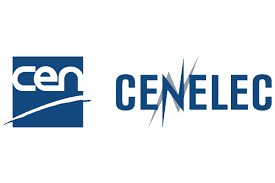
Standard
ABSTRACT
The proposed standard will specify a reference architecture for decentralised identity management, optionally enabled by distributed ledger technology (DLT) and blockchain systems. The reference architecture aims to natural persons and legal entities and addresses concepts, cross-cutting aspects, architectural considerations, and architecture views, including functional components, roles, activities, and their relationships with blockchain and DLT. Technical specifications of the legal identity itself and specifically those of official identity documents issued by competent authorities are outside the scope of this standard, since they are regulated based on its own legislation and technical standards. Likewise, this standard does not aim to define specifications that are within the scope of REGULATION (EU) No 910/2014 OF THE EUROPEAN PARLIAMENT AND OF THE COUNCIL of 23 July 2014 on electronic identification and trust services for electronic transactions in the internal market and repealing Directive 1999/93/EC, currently in force, but to support the Proposal for a REGULATION OF THE EUROPEAN PARLIAMENT AND OF THE COUNCIL amending Regulation (EU) No 910/2014 as regards establishing a framework for a European Digital Identity (COM/2021/281 final, eIDAS 2 Proposal), which includes the provision by Member States of EU Digital Identity Wallets as an enabler for personal identification and qualified trust services, including the issuance of qualified electronic attestations of identity attributes. The standard does not aim to impose any device identification procedure before third parties, without prejudice of any wallet authentication capability required by the eIDAS 2 Proposal. The standard will meet at least the following criteria: - it is technologically neutral; - it is compatible with other relevant international standards on digital identity, such as ISO/IEC 24760, - it is applicable to identity attributes of natural persons, legal entities and things, - the application of this standard allows compliance with current privacy and personal data protection regulation, when appropriate, - it is aligned with the relevant provisions of the eIDAS 2 Regulation proposal, - it enables the deployment of practical, usable, flexible and cost-efficient decentralised identity management systems, - it takes into account the specific needs of small and medium-sized enterprises (SMEs); and, - it is suitable for use in business-to-business relationships with individuals and legal entities.
General information
- Status: Under development
- Publication date :
- Working Groups :
- Category: Digital Product Passport
-
SDO:
-
Latest published version :